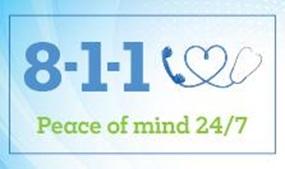"Palliative care is about living."

“Palliative care is about living,” said Blanche Ward, an integrated palliative care program social worker for Health PEI. “You can live with your life-limiting illness when provided the right support. We want people to have a more positive perception of what palliative care is and what care is provided. We want to help people live until they die.”
Palliative care is provided by a collaborative team, including physicians, nurses, social workers, volunteers, and other professionals to support the client and their care-givers.
“Palliative care isn’t always because death is imminent. And it is not just for cancer. When provided early, it is called the palliative approach to care. It’s about talking about fears, the patient’s values, planning for when the time comes, building legacy, screening for symptoms, and addressing those symptoms. It can and should be provided along with curative treatments.”
– Dr. Mireille Lecours, palliative care physician
A client can be identified as needing the palliative approach to care by their family doctors, medical homes, respirologists, and other health professionals. Once identified, the client would ideally receive the palliative approach to care instead of just nursing the condition they have. It’s about prevention, being proactive, and planning instead of being reactive.
Health PEI has palliative care services in facilities across the Island, including 10 beds at the Provincial Palliative Care Centre in Charlottetown, six medical/palliative beds at Prince County Hospital, as well as beds at Westerns Hospital, Community Hospital O’Leary, Kings County Memorial Hospital, Souris Hospital, and various long-term care facilities. The majority of palliative care patients are at home being followed by home care teams.
“Human nature wants to live, not die”, said Dr. Lecours. “People choose life over death most of the time. Palliative care allows them to do that. When the right team is in place and clients are provided with the right services, it helps the client stay in their homes, which also eases the burden on the acute-care system. We want to allow clients to be an active participant in their lives.”
Learn more about the Provincial Palliative Care Program and available services.


